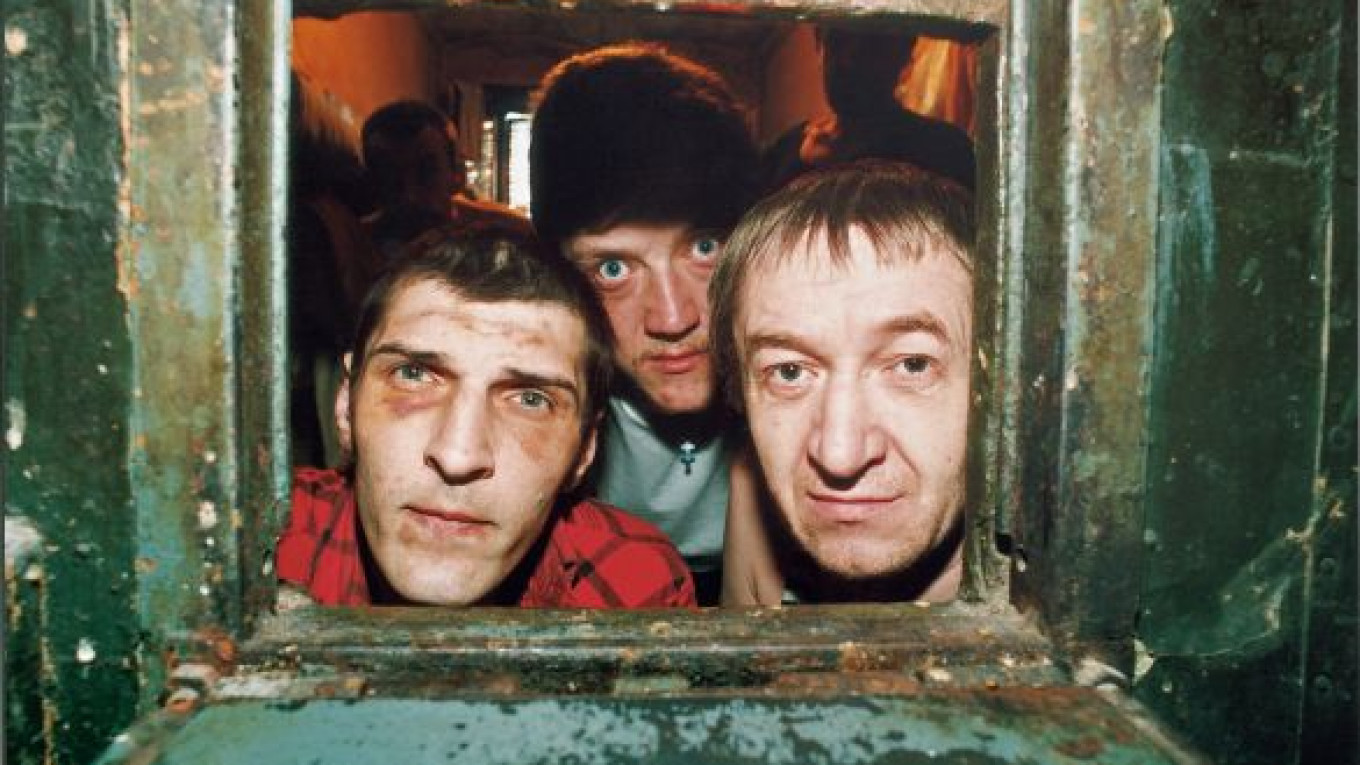The country's overcrowded prisons could release 15,000 inmates if the State Duma takes up a "business amnesty" proposed by the parliamentary opposition.
The idea, first floated by the business community, could do much to improve the country's dismal economic climate. But lawmakers and analysts said it has only slim chances of success simply because it did not stem from the ruling party.
A draft bill proposing to replace prison sentences for those convicted of "minor economic crimes" with correctional labor was introduced in the lower chamber Thursday, RIA-Novosti reported.
The draft, which also covers underage convicts serving terms less than five years, was co-authored by A Just Russia, the Communist Party and Liberal Democratic Party, the report said.
The parties jointly control 135 of 450 seats in the lower chamber. United Russia, which occupies the remaining 315 seats, has not commented on the idea.
No time frame for reviewing the draft was set Thursday. The authors proposed timing the amnesty for the 20th anniversary of Russia's independence in December — when, incidentally, Duma elections will also take place.
The amnesty would cover about 1.5 percent of the country's prison population of 1 million, said draft co-author Vera Lekaryova, a Duma deputy with A Just Russia.
"These people are needed at the country's construction sites," she said, RIA-Novosti reported. "They can, say, work two weeks for the state and then two weeks for themselves."
Another co-author, Oleg Mikheyev, agreed that convicted entrepreneurs would do more good to the country outside their cells, and added that too many people are jailed for economic crimes, some of them unfairly.
"Between 70,000 and 100,000 people a year are convicted on economic-related charges," Mikheyev, also a member of A Just Russia's Duma faction, said by telephone.
"They've served their time [in prison] and pose no danger to the state," he added.
The amnesty will not include convicts in high-profile trials, such as ex-oil tycoon Mikhail Khodorkovsky, as it is limited to "minor crimes." But it would still be a significant step for a country where "every sixth entrepreneur is convicted," Yana Yakovleva, head of the Business Solidarity lobby group, said by telephone Thursday.
President Dmitry Medvedev has been campaigning to improve the business climate and prevent unfair persecution of entrepreneurs by law enforcement agencies, but his initiatives have been mostly ignored by officials on the ground.
Presidential adviser Arkady Dvorkovich admitted in an interview with the Financial Times last week that "no real progress" has been made, and "investment is very low."
Business Solidarity was the first to call for a "business amnesty," voicing the idea last month in an open letter to Medvedev in which it said almost 15 percent of all "economic actors" have faced criminal prosecution over the last decade.
The letter was signed, among others, by Igor Yurgens, chief of Medvedev's main think tank, the Institute for Contemporary Development, and former deputy Supreme Court Chairman Viktor Zhuikov. The president did not comment on the proposal.
"We support the idea by all means, even though it's not as scaled as we suggest," Yakovleva said about the new draft law. "This could be a really good signal for businesses, some real step."
But United Russia may be reluctant to support the idea put forth by its rivals ahead of the elections, conceded Sergei Markov, a lawmaker with the ruling party.
"The majority party never rushes to realize the opposition's initiative," Markov said by telephone.
But he admitted that the amnesty is an "essential issue" and that it conforms to Medvedev's own policies. "So the ruling party will bring up its own initiative on the subject," Markov promised.
"The very fact that discussion [on the matter] has started is very important," even if the amnesty proposal fails to pass the Duma, Yakovleva said.
A Message from The Moscow Times:
Dear readers,
We are facing unprecedented challenges. Russia's Prosecutor General's Office has designated The Moscow Times as an "undesirable" organization, criminalizing our work and putting our staff at risk of prosecution. This follows our earlier unjust labeling as a "foreign agent."
These actions are direct attempts to silence independent journalism in Russia. The authorities claim our work "discredits the decisions of the Russian leadership." We see things differently: we strive to provide accurate, unbiased reporting on Russia.
We, the journalists of The Moscow Times, refuse to be silenced. But to continue our work, we need your help.
Your support, no matter how small, makes a world of difference. If you can, please support us monthly starting from just $2. It's quick to set up, and every contribution makes a significant impact.
By supporting The Moscow Times, you're defending open, independent journalism in the face of repression. Thank you for standing with us.
Remind me later.


